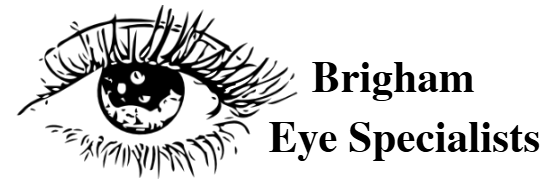
Maintaining optimal vision and eye health requires regular attention and care. One of the most important steps you can take is to undergo a comprehensive eye exam, a thorough evaluation of your visual system that can detect a wide range of issues and ensure your eyes are functioning at their best.
What is a Comprehensive Eye Exam?
A comprehensive eye exam is a comprehensive assessment of your visual system. Unlike a basic vision screening or a routine eye exam, a comprehensive exam delves deeper into the health and function of your eyes, providing a detailed evaluation of your visual acuity, refractive errors, eye muscle coordination, and overall eye health.
During a comprehensive eye exam, your optometrist will employ a range of advanced diagnostic tools and techniques to thoroughly examine the internal and external structures of your eyes. By utilizing these advanced diagnostic tools and techniques, your optometrist can gain a comprehensive understanding of your visual system and identify any potential issues or areas of concern.
What to Expect During a Comprehensive Eye Exam
Undergoing a comprehensive eye exam may seem daunting, but it's a straightforward and often quick process. Here's what you can typically expect during your appointment:
• Medical History and Questionnaire: Your eye care provider will begin by asking about your medical history, any vision-related symptoms you may be experiencing, and any family history of eye conditions.
• Visual Acuity Testing: You'll be asked to read an eye chart, which will help your eye care provider assess your distance and near visual acuity.
• Refraction: Your provider will use a phoropter, a specialized instrument, to determine the precise prescription for corrective lenses.
• Eye Muscle Evaluation: Your provider will assess the coordination and movement of your eye muscles, often by having you follow a target or perform other simple eye exercises.
• Slit-Lamp Examination: You'll be asked to rest your chin and forehead on a support while your provider examines the front and internal structures of your eyes using a slit-lamp microscope.
• Tonometry: Your provider will measure the pressure inside your eyes, often using a gentle puff of air or a small, handheld instrument that lightly touches the surface of your eye.
• Dilation: If necessary, your provider may use eye drops to temporarily dilate your pupils, allowing for a more comprehensive evaluation of the internal structures of your eyes.
Your optometrist will take the time to explain each step and answer any questions you may have, ensuring you feel comfortable and informed throughout the process.
What Can a Comprehensive Eye Exam Detect?
A comprehensive eye exam is an invaluable tool for detecting a wide range of eye conditions and health issues. By thoroughly examining your visual system, your eye doctor can identify:
• Refractive Errors: Conditions like nearsightedness (myopia), farsightedness (hyperopia), and astigmatism, which can be corrected with prescription lenses or other treatments.
• Eye Diseases: Conditions such as glaucoma, cataracts, age-related macular degeneration, and diabetic retinopathy, which can be detected and managed early on.
• Eye Muscle Disorders: Issues with the coordination and movement of your eye muscles, which can contribute to vision problems like double vision or eye strain.
• General Health Conditions: A comprehensive eye exam can also reveal signs of underlying health issues, such as high blood pressure, diabetes, or neurological conditions, which can manifest in the eyes.
The Importance of Regular Eye Exams for Early Detection and Treatment
Regular comprehensive eye exams allow your doctor to establish a baseline for your visual health and track any changes over time. This enables them to identify potential issues or conditions early on, when they are often more treatable and manageable. Early detection can make a significant difference in the long-term prognosis and outcomes for many eye diseases, such as glaucoma, diabetic retinopathy, and age-related macular degeneration.
Schedule Your Comprehensive Eye Exam with Brigham Eye Specialists Today
By undergoing regular comprehensive eye exams, you can take proactive steps to maintain optimal vision and catch any potential problems before they have a chance to progress. By working with your optometrist, you can develop a personalized plan to preserve your eye health and ensure you enjoy clear, comfortable vision for years to come.
Schedule your comprehensive eye exam with Brigham Eye Specialists at our office in Brigham City, Utah. Call (435) 734-2097 to book an appointment today.




